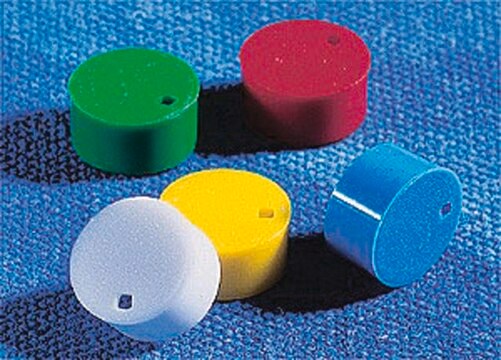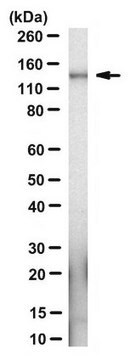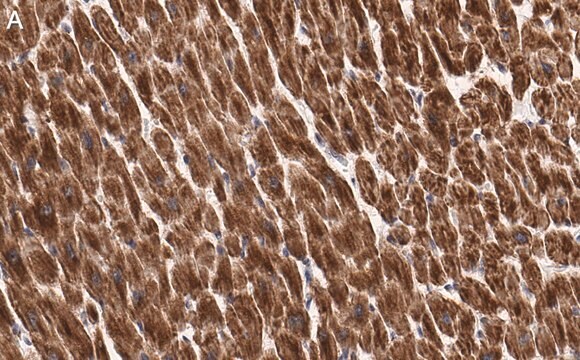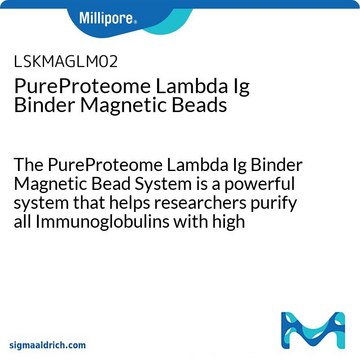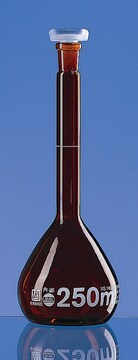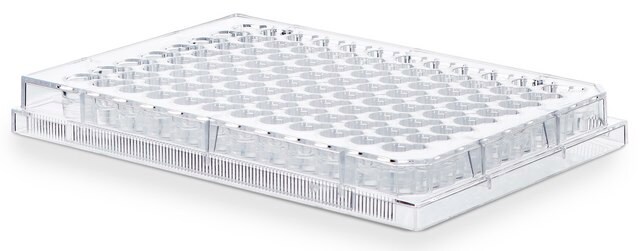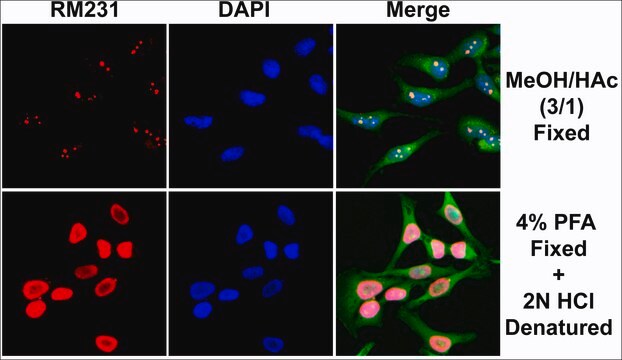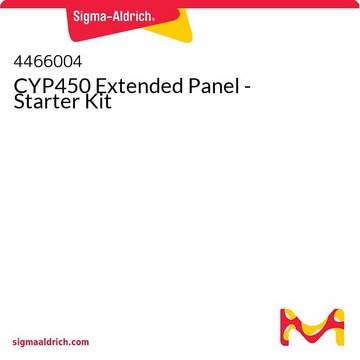MABC1187
Anti-Apaf-1 Antibody, clone 18H2
clone 18H2, from rat
Synonym(e):
Apoptotic protease-activating factor 1
About This Item
Empfohlene Produkte
Biologische Quelle
rat
Qualitätsniveau
Antikörperform
purified antibody
Antikörper-Produkttyp
primary antibodies
Klon
18H2, monoclonal
Speziesreaktivität
human, mouse
Methode(n)
western blot: suitable
Isotyp
IgG2aκ
NCBI-Hinterlegungsnummer
UniProt-Hinterlegungsnummer
Versandbedingung
ambient
Posttranslationale Modifikation Target
unmodified
Angaben zum Gen
human ... APAF1(317)
mouse ... Apaf1(11783)
Allgemeine Beschreibung
Spezifität
Immunogen
Anwendung
Apoptose & Krebs
Western Blotting Analysis: A representative lot detected Apaf-1 in Western Blotting applications (Marsden, V.S., et. al. (2006). Blood. 107(5):1872-7).
Qualität
Western Blotting Analysis: A 1:2,000 dilution of this antibody detected Apaf-1 in 10 mg of SH-SY5Y cell lysate.
Zielbeschreibung
Physikalische Form
Lagerung und Haltbarkeit
Sonstige Hinweise
Haftungsausschluss
Sie haben nicht das passende Produkt gefunden?
Probieren Sie unser Produkt-Auswahlhilfe. aus.
Lagerklassenschlüssel
12 - Non Combustible Liquids
WGK
WGK 2
Flammpunkt (°F)
Not applicable
Flammpunkt (°C)
Not applicable
Analysenzertifikate (COA)
Suchen Sie nach Analysenzertifikate (COA), indem Sie die Lot-/Chargennummer des Produkts eingeben. Lot- und Chargennummern sind auf dem Produktetikett hinter den Wörtern ‘Lot’ oder ‘Batch’ (Lot oder Charge) zu finden.
Besitzen Sie dieses Produkt bereits?
In der Dokumentenbibliothek finden Sie die Dokumentation zu den Produkten, die Sie kürzlich erworben haben.
Unser Team von Wissenschaftlern verfügt über Erfahrung in allen Forschungsbereichen einschließlich Life Science, Materialwissenschaften, chemischer Synthese, Chromatographie, Analytik und vielen mehr..
Setzen Sie sich mit dem technischen Dienst in Verbindung.